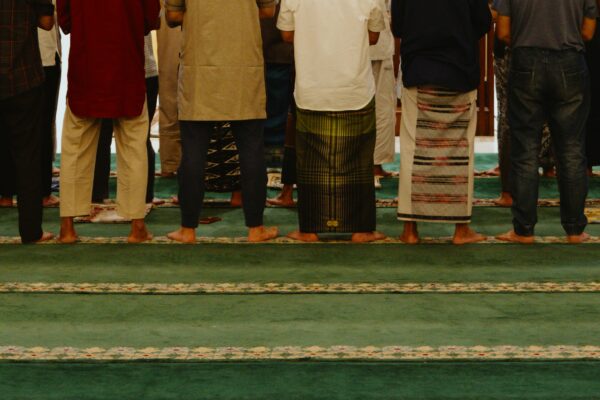Sectarianism over the centuries has demonstrated its ugly side, from boycotting to even killings. Muslims have refused to engage or speak with each other due to creedal issues.
Sectarianism over the centuries has demonstrated its ugly side, from boycotting to even killings. Muslims have refused to engage or speak with each other due to creedal issues.
The late eighties and early nineties witnessed the vast rise of Salafism or Wahhabism activism in the UK. From the universities, colleges, and even high schools, we saw a dramatic move to the right for many Muslims, who were not content with blindly following the ways of their parents. This new activism provided a different perspective for being Muslim and abandoning what was (controversially) described as “ignorant Hindu-rituals”.
The motto employed by the new phenomena was unique and incredibly compelling, in my opinion, “following the Qur’an and Sunnah”. It significantly contextualised the entire propaganda under the debate that most Muslims had abandoned the tradition by following the four schools of Sunni Islam or the opinion of human beings. It also relentlessly argued the necessity of subjugation to the Qur’an and Sunnah.
During my youth, I saw the emergence of what is termed “Islamic political activism” – a concept whose impact I would argue would change the very demographic for future Muslim activism. The Urdu-speaking religious elites who, until then had immunity to criticism and accountability, were slowly being replaced by smartly dressed educated English speaking dāʿīs (propagators) who provided an alternative platform for the youth to address the many injustices Muslims faced globally.
This newly formed activism was spearheaded by Hizb al-Tahrir (HT), a political movement calling for the restoration of the Khilafah system. Its impact could not be denied; in 1994, HT organised the largest gathering of young Muslims in the UK – over ten thousand people attended its Khilafah conference at Wembley Arena, calling for the restoration of Islam as a political ideology.
The Ikhwani impact goes as far as 1962, which saw the establishment of the UK Islamic Mission (UKIM). The trust aimed to instill Islamic values and ethics in society, and the movement – initiated by educated Pakistanis – heavily relied on the methodological approach of its spiritual leader Syed Abul A’la Maududi (d. 1979). Over the next few decades, sympathisers with UKIM established youth sections of their movements to further their aims and objectives.
The most prominent was Young Muslims UK (YMUK) which identified key issues that confronted young British Muslims and opted to provide guidance. From lecture tours to annual conferences to even residential retreats, the notion was instilling the right shakhsiyah Islamiyah (Islamic character/personality) in modern Britain. The challenges that it faces were hostility from groups like HT who vehemently called them apologists who compromised Islamic principles to justify the end means.
I can remember reading an article regarding the newly established Muslim Council of Britain, which Al-Muhajiroun authored titled “Muslim Council of Britain, funded by the Saudis and established by the UK government”. Although the aim was to discredit such organisation as not representing Muslims or Islam, the latter (Muhajiroun) went further and even excommunicated (takfir) MCB from Islam.
For Sufi Muslims, the debate became highly polemical. The majority of British Muslims came from Pakistan and associated themselves with Barelvis or Deobandis. The older generation were uncomplicated individuals who migrated to the UK to make a better life for their children. These two splinter sections of Sunni Hanafi were adamant of critiquing via sectarian theology on the concept of who was the saved sect in Islam.
Being born into what could be described as a Sufi (Barelvi) family, I often remember the ongoing debate surrounding sectarianism during the beginning of Ramadhan. Ruminating on the past reminds me of when one of my elder siblings, who had adapted to follow the new English speaking dāʿīs, came home and challenged the rest of the family when Eid should be celebrated. My other sibling, an adamant Sufi, refused to compromise, and it was decided that we would celebrate Eid when the local Barelvi elites would make the announcement.
Sectarianism over the centuries has demonstrated its ugly side, from boycotting to even killings. Muslims have refused to engage or speak with each other due to creedal issues. In the late nineties, a dire call was made by certain Barelvi elites for a national conference in Blackburn to excommunicate some of the Deobandis founders on the grounds of preserving traditional Sunni Islam. This type of naivety and extremism fuels hatred and even violence for others, hence the importance that such creedal differences are discussed in the right environment.
However, in the last three decades, the Muslim community has evolved significantly. The rise of the internet and access to more information enables us to view the world more holistically. With intermarriages between different sects becoming a norm, we are witnessing a rise of tolerance between different community sections. This resonates with work we are conducting at The Centre for Intra Muslim Studies (CIMS) in Birmingham, which endeavours to awaken the silent majority.
CIMS aims to debate, discuss, and critique the most contentious differences between Muslims in what my dear brother Dr Ali-Reza Bhojani, the co-director, refers to as “critical engagement with collegiality”. There is a fundamental need for Muslim experts to put forth a relevant yet meaningful mechanism to manage and engage the diversity of the Muslim community.





